The Independent Living Practice (ILP) home is one of the core programs of SCIN Nepal. Through this initiative, SCIN Nepal has been operating an ILP home for adolescents with spinal cord injuries, providing young people from rural areas with the opportunity to continue their education after experiencing paralysis. This home specifically supports young SCI students who are in grades up to 12.
In the context of Nepal, access to education is severely limited for those dependent on wheelchairs for mobility. As a result, many young adolescents face the daunting prospect of abandoning their educational aspirations. The ILP home offers these students a chance to continue their studies while residing at the facility, allowing them to attend an inclusive school nearby.
At the ILP home, students receive basic medical care, have opportunities to participate in various para sports, and benefit from peer support and self-care education. These experiences empower them to accept their disabilities and help them thrive in life. Furthermore, the ILP home provides family members with valuable time to come to terms with their children’s situations following the traumatic events of paralysis.
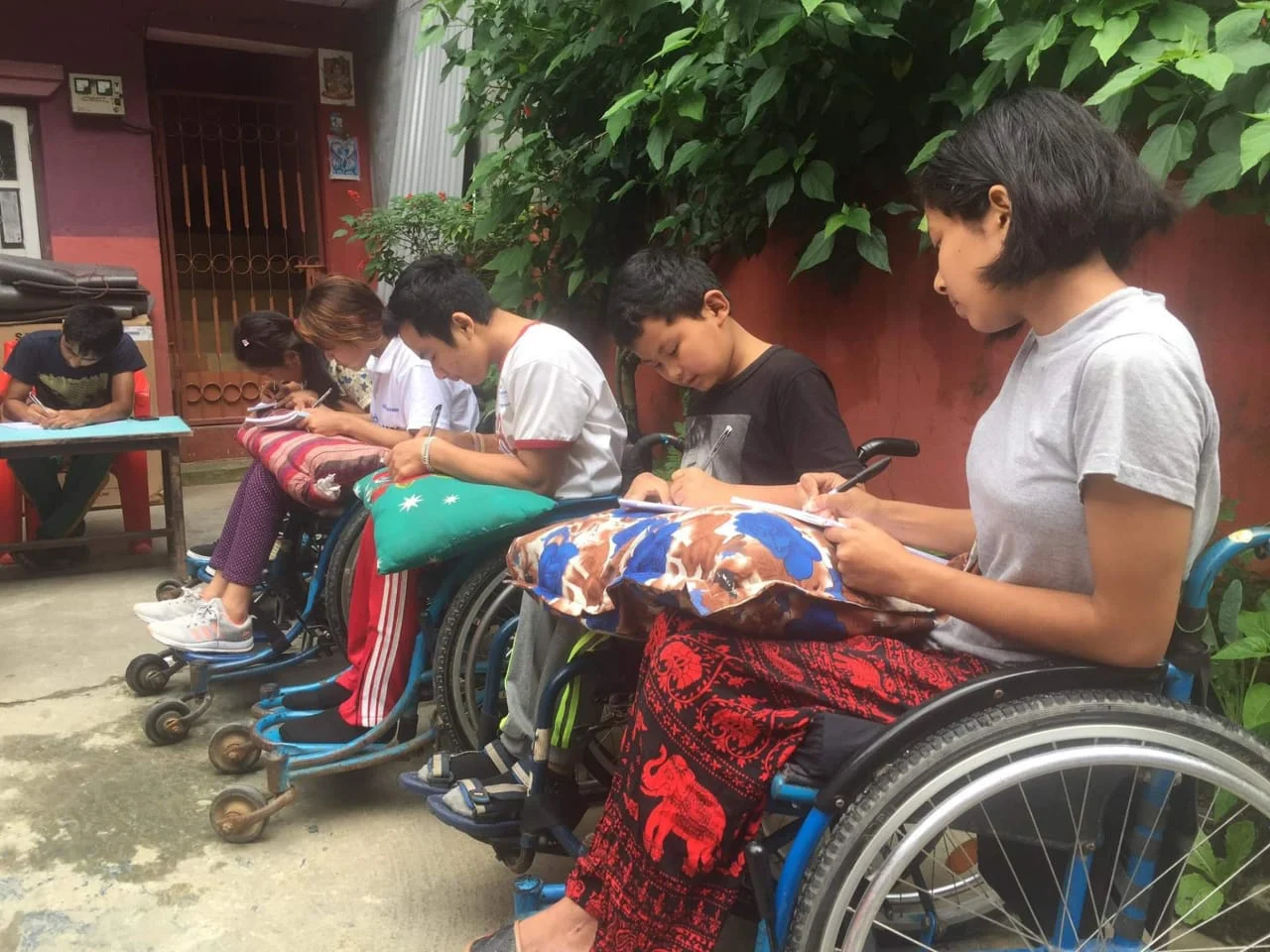
Sports is one of the most effective tools for motivating individuals with disabilities to integrate into their communities and live with dignity. The Spinal Cord Injury Network Nepal (SCINN) organizes various sports events, such as awareness initiatives like wheelchair basketball friendship games in schools, colleges, and public spaces, to raise awareness about disabilities. Additionally, they conduct adventurous wheelchair races to empower persons with disabilities, demonstrating that they can participate in thrilling activities. SCINN also promotes various para sports, including swimming, table tennis, cricket, and pickle ball, among others.
Engaging in sports not only helps keep individuals with disabilities physically healthy but also empowers them to represent their country at national and international levels. SCINN actively promotes accessible tourism, outdoor camping, and cultural programs to keep individuals with disabilities engaged within their communities. We strongly believe through sports it helps to empowerment and inclusion, physical health and well-being, social connection, mental health benefits, skills development and raised awareness.
SCINN’s initiatives in promoting sports and entertainment play a pivotal role in empowering individuals with disabilities, enhancing their quality of life, and fostering a more inclusive community.
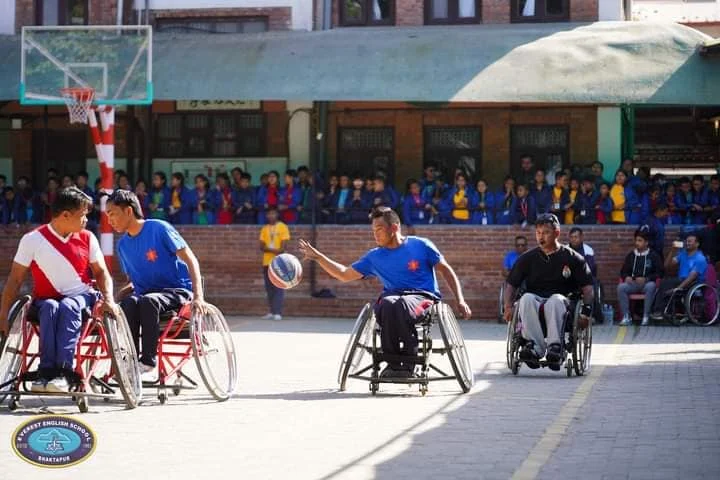
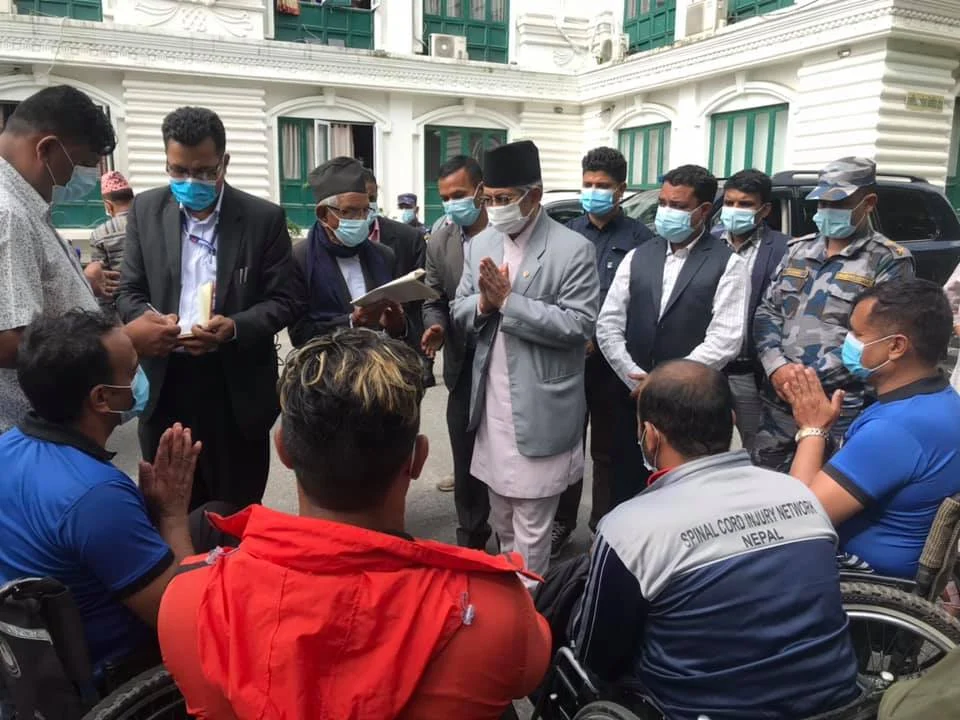
The Spinal Cord Injury Network Nepal (SCINN) has a mission and vision focused on creating a disability-friendly environment and securing human rights through proactive advocacy and lobbying initiatives with relevant authorities. SCINN is actively engaged in lobbying for the implementation of disability laws and international conventions, particularly the United Nations Convention on the Rights of Persons with Disabilities (UNCRPD).
Their advocacy efforts prioritize essential areas such as accessibility, education, employment, assistive devices, healthcare, and social security, addressing the core needs of persons with disabilities in Nepal. By employing a human rights-based approach, SCINN emphasizes the rights and dignity of individuals with disabilities, advocating for their inclusion in society. This approach not only raises awareness but also fosters cooperation between stakeholders, ensuring that the voices of persons with disabilities are heard and considered in policy-making. Such efforts play a vital role in transforming societal attitudes and improving overall quality of life for disabled individuals in Nepal.
The Spinal Cord Injury Network Nepal (SCINN) organizes various vocational training programs, including basic and advanced computer training, digital marketing, English language courses, knitting and sewing, felt production training, and public service commission preparation classes. These initiatives are designed in collaboration with different government agencies and organizations for persons with disabilities, aiming to empower individuals with physical disabilities and help them achieve financial independence. SCINN particularly prioritizes offering these training opportunities to individuals with spinal cord injuries. Vocational training is essential for persons with disabilities in Nepal as it promotes economic self-sufficiency and reduces dependency on charitable assistance. By equipping individuals with practical skills, vocational training enhances their employability and integration into the workforce. This not only boosts their confidence and self-esteem but also raises awareness about the capabilities of people with disabilities, fostering a more inclusive society. Ultimately, vocational training paves the way for social and economic advancement for persons with disabilities.
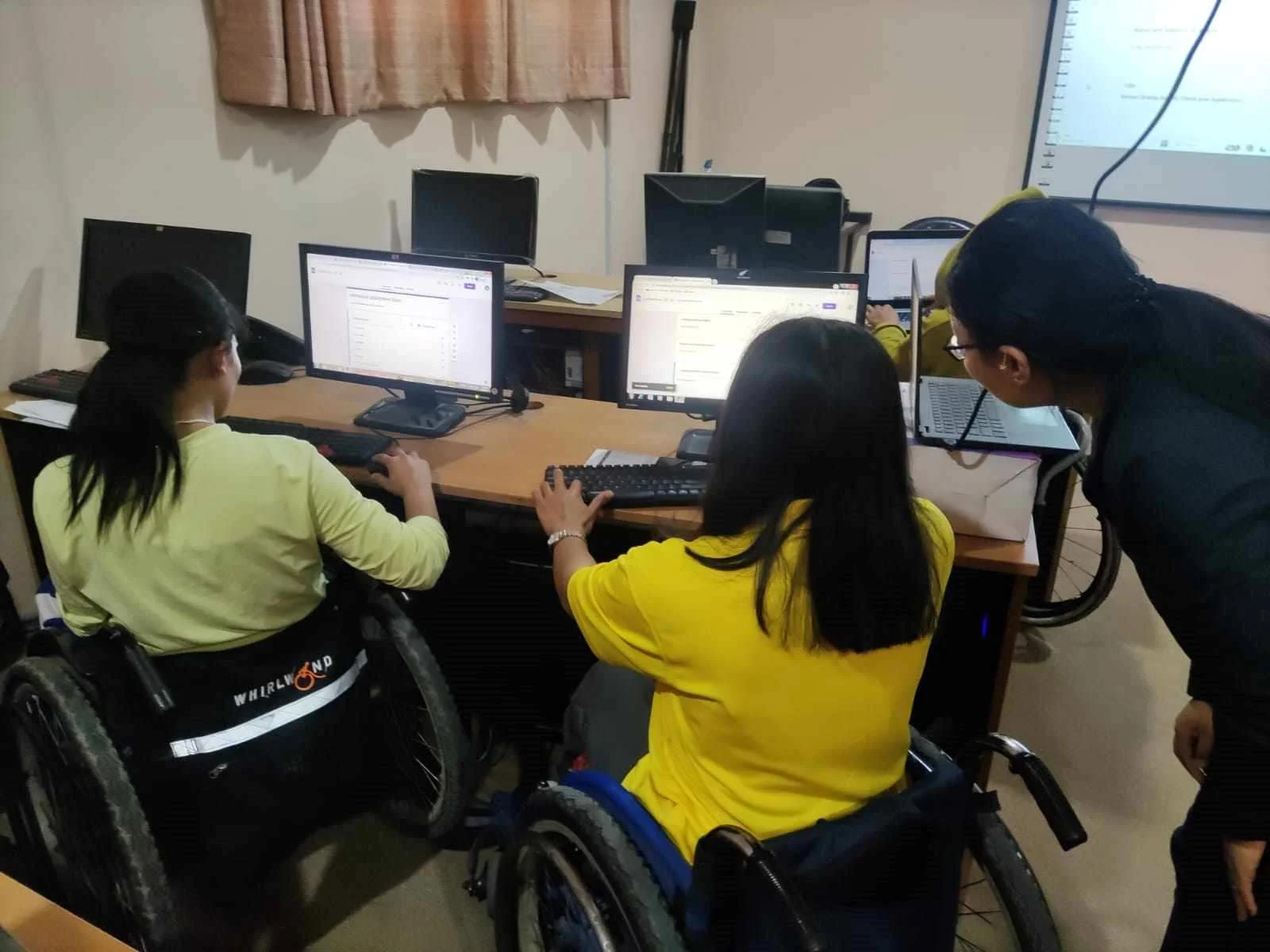
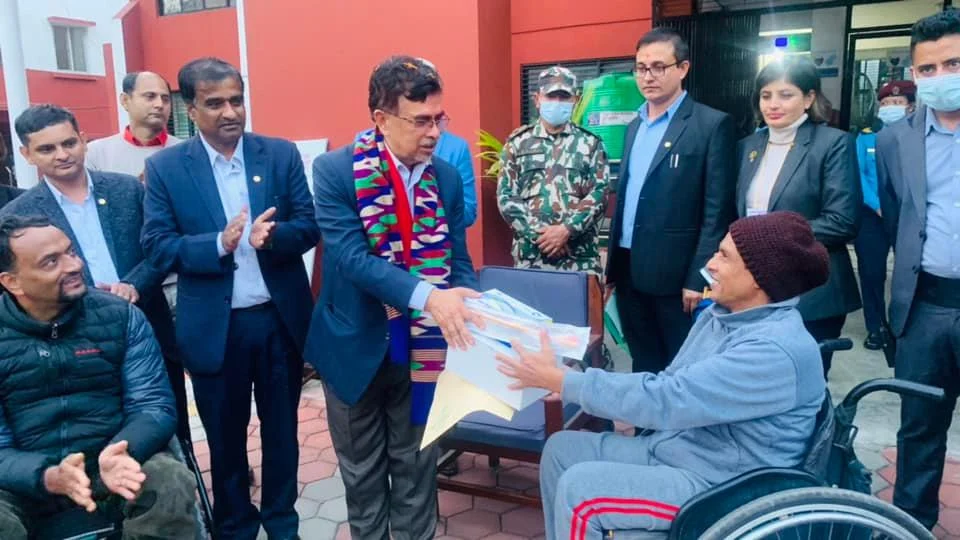
The Spinal Cord Injury Network Nepal (SCINN) is dedicated to addressing health issues faced by individuals with spinal cord injuries. Through various initiatives, SCINN advocates for access to appropriate healthcare services, rehabilitation programs, and ongoing medical support to enhance the quality of life for those affected. Additionally, SCINN promotes the importance of suitable assistive devices for individuals with all types of disabilities, recognizing that these tools are crucial for independence and mobility. By collaborating with healthcare providers, government agencies, and organizations, SCINN aims to ensure that people with disabilities receive the necessary resources and support to lead fulfilling and active lives.
The Spinal Cord Injury Network Nepal (SCINN) recognizes the critical role of peer support and peer counselling for individuals with spinal cord injuries. This initiative provides a safe space for sharing experiences, addressing trauma, and navigating the emotional challenges of living with a disability. Peer counsellors, often with similar backgrounds, offer valuable insights into financial conditions, employment barriers, and issues related to sexual and reproductive health. This support helps individual’s combat psychological barriers and fosters resilience and empowerment. By connecting with others who understand their journey, individuals can find motivation and practical guidance, ultimately enhancing their quality of life and facilitating social reintegration.
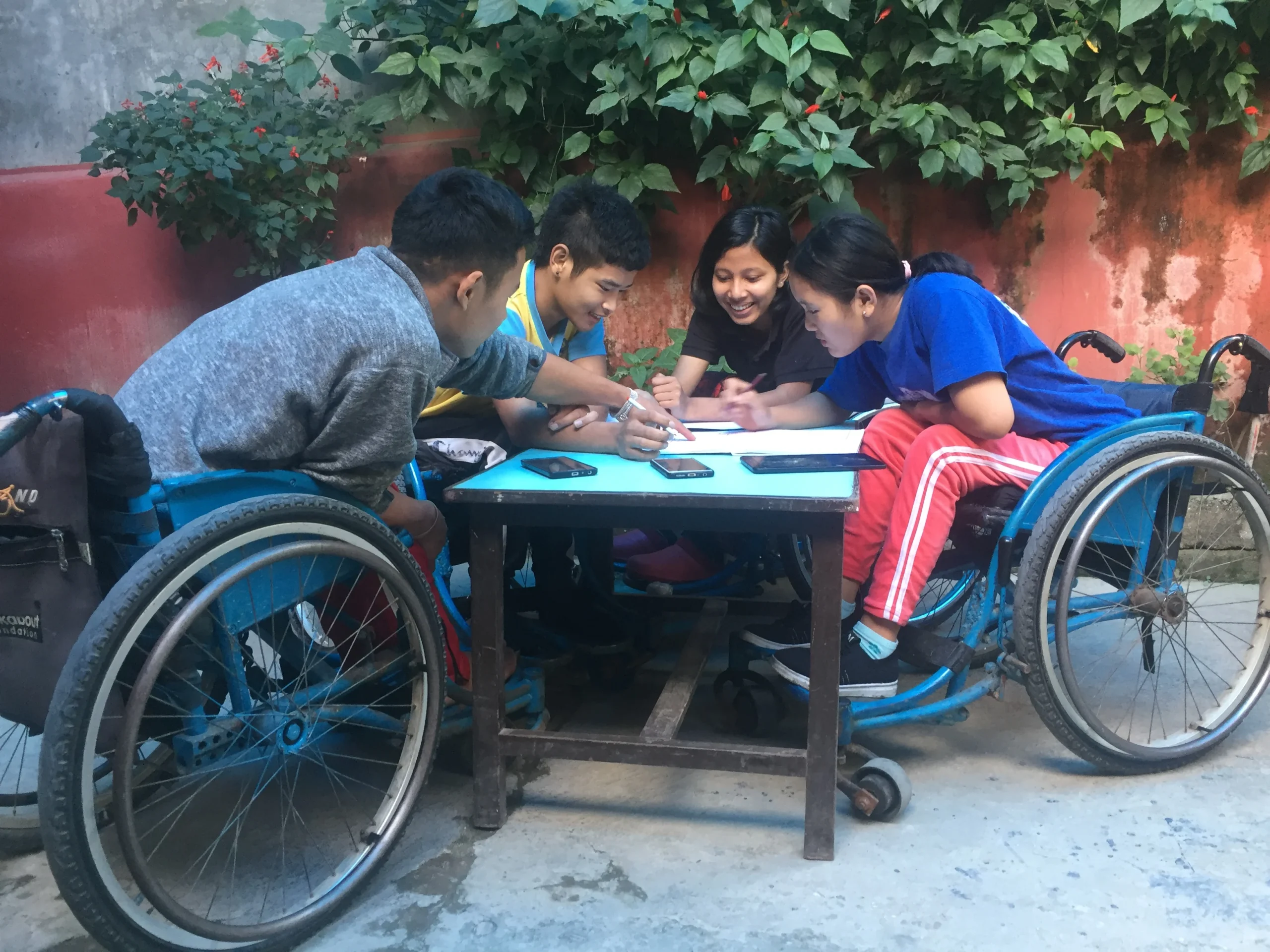
The study of spinal cord injury (SCI) in Nepal conducted by Spinal Cord Injury Network Nepal sheds light on the multifaceted challenges faced by individuals living with such disabilities. Conducted through a snowball sampling method and utilizing Google Forms for data collection, this analysis draws from responses gathered from 1,000 SCI individuals across all provinces and districts of Nepal. The findings reveal significant demographic patterns, the causes and types of injuries, and the socio-economic hurdles faced by SCI disabilities. This analysis concludes that the situation of spinal cord injured individuals in Nepal is characterized by significant socio-economic challenges, healthcare inadequacies, and systemic barriers, all of which perpetuate a cycle of vulnerability and marginalization. Addressing these challenges requires not only improved medical and rehabilitative support but also socioeconomic interventions, community awareness programs, and stronger governmental policies tailored to empower individuals with spinal cord injuries. Such comprehensive efforts are essential for fostering a more inclusive and supportive environment for this community.
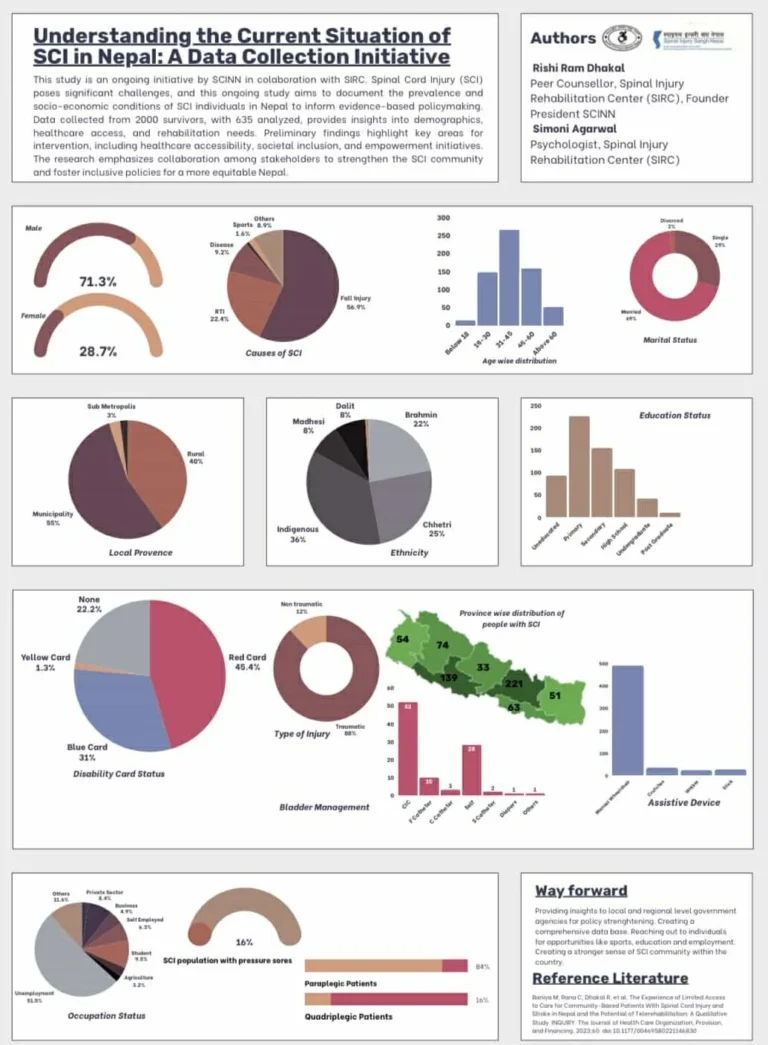
Spinal Cord Injury Network Nepal (SCINN) empowers individuals with spinal cord injuries by promoting independence, inclusion, and self-reliance through advocacy, education, and support, enhancing accessibility and quality of life across Nepal.
